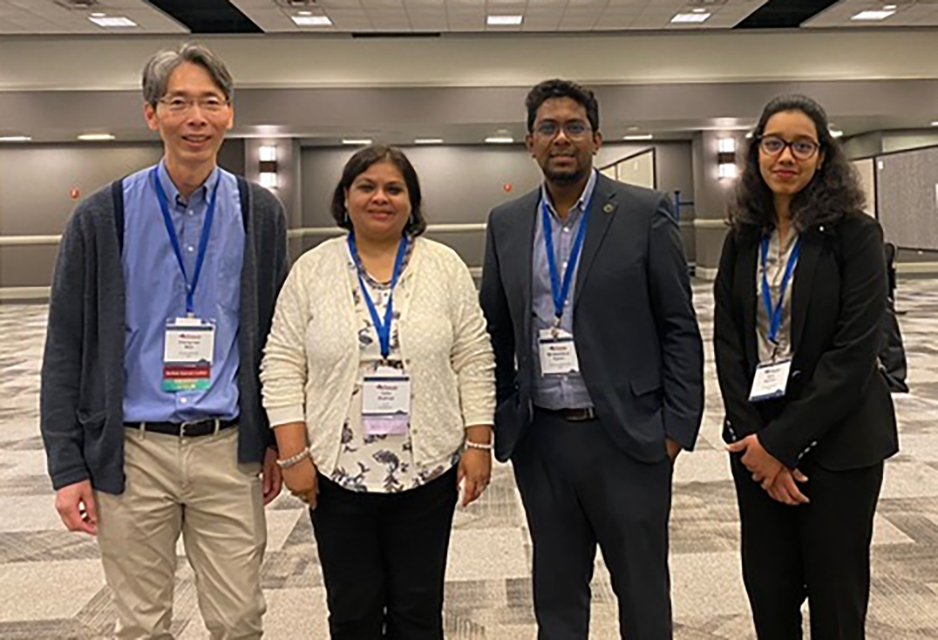Electrical and computer engineering doctoral student Nazia Rahman was awarded first place in the 2022 IEEE Sensors Conference Big Idea Pitch competition in Dallas, Texas, this past fall.
Rahman pitched her research topic, “Identifying Benign and Malignant Breast Tumor Using Vibro-Acoustic Tactile Imaging Sensor,” in 90 seconds at the conference. The project in development at Temple’s Control, Sensor, Network, and Perception Laboratory aims to use a noninvasive smartphone-based system to capture images of mammary tumors and then process and characterize them.
Mammograms are not often recommended for women under 40 and are unavailable in many locations, so this research could help young women detect or rule out signs of breast cancer.
“It was a great experience because after coming to the United States, I got a chance to participate in such a conference,” Rahman said. “ I feel very happy, and also I get a chance to explore a new city.”
Rahman—who came to the United States from Bangladesh in 2021—is passionate about electrical engineering and decided to pursue a Ph.D. at Temple.
She described the difficulty in leaving her home country behind, but has been able to develop her interests through engineering research, starting with Temple professor Chang-hee Won, PhD, director of the C-SNAP lab.
His research aligned with Rahman’s undergraduate studies, so she applied and got started with her award-winning work alongside her senior lab partner, Sung In Choi.
“She has a very helping hand,” Rahman said. “When I first came, she helped me learn how to survive in the PhD program.”
Rahman has found her niche in the C-SNAP lab, even spending hours gossiping with them after work. They’re each from different countries—Bangladesh, Korea and the United States—so they all learn from each other.
“It's a great chance to share our cultures, our ideas. We can learn to better each other,” Rahman said.
She plans to stay involved with tumor characterization research as well as other CSNAP lab projects, including optimal control of a laboratory robot, which Rahman is still in the process of learning about, for about five more years.
However, her ultimate goal is to continue in academia as a professor.
“My professor inspired me a lot to stay involved in the academic life because in the academic life we have a chance to continue our research, to be involved in the research field,” Rahman said.
Now, Dr. Won is guiding her in the direction of teaching higher education, but he’s not the only person Rahman admires. Her husband Saidur Rahman Pavel, also pursuing a PhD in electrical and computer engineering at Temple, is Nazia’s top supporter.
“He's the best inspiration for me,” Rahman said. “If I feel very, ‘No, I cannot handle it,’ he's the one who supports me.”
Although it will be a lengthy process to introduce the lab’s technology into hospitals, Rahman and her colleagues will first begin attempting to detect tumors in cats and dogs at animal hospitals because it’ll be a bit easier until they can detect tumors in humans, which could be a game changer for the medical field.
“This system has the ability to make a great impact,” Rahman said.

